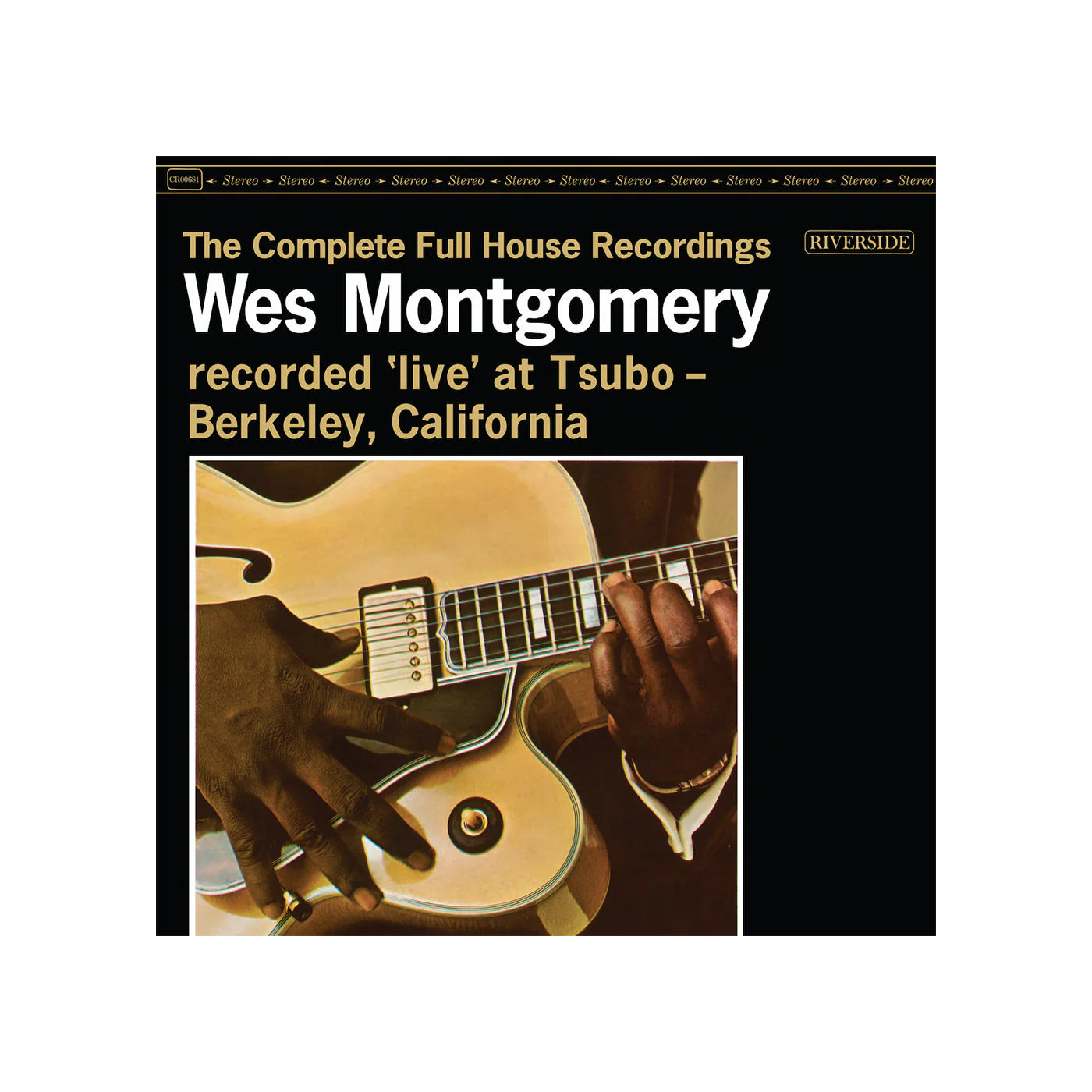Wes Montgomery – A Fuller House
Long before the rise of the “Coffee Culture”, the basic set-up of your local Starbucks was already well established in most American cities. Known at the time as simply coffee houses, they served various coffees, teas, pastries and sandwiches, while providing a place for people to read, relax or just get together and hang out.
At that time, many coffee houses would also feature live music – mostly local folk singers accompanying themselves on their own instruments. Occasionally touring acts would play at these venues, creating an entirely new vibe for regular patrons. In a relatively unusual move for a jazz musician, guitarist Wes Montgomery recorded one night only at a well known coffee house in Berkeley, California.
Montgomery had previously played the Tsubo coffee house in the late 1950s with his brothers Monk and Buddy in their group The Montgomery Brothers. The word “tsubo” itself is Japanese for a unit of areal measure, approximately 3.3m2 or 35.5ft2 - equivalent to the area of two rectangular tatami mats placed side-by-side to form a square. While the Tsubo coffee house was actually larger, it was still a rather intimate setting for a recording venue.
After a number of successful albums for Riverside Records in the early ‘60s, Wes Montgomery and label producer Orrin Keepnews had been looking for an opportunity to record the guitarist live. When Montgomery learned that Miles Davis would be playing across the bay in San Francisco and that Miles’ rhythm section would be available on their off nights as well as fellow Riverside artist Johnny Griffin (also playing locally at the time), plans were put into place for a recording date.
With famed West Coast recording engineer Wally Heider on the date, a back storage room at Tsubo was set up as a makeshift control room. Advance publicity for the show led to so many fans that there was both a permanent line around the block as well as a large audience standing in the adjacent vacant lot who heard the entire night’s recording from the loudspeakers set up in the control room.
Approximately ninety minutes of music was recorded that night with the final LP, appropriately titled “Full House”, clocking in at just forty-three minutes. Though several alternate takes have been released over the years, the entire night’s recording has been released this spring in a three LP set “Wes Montgomery – The Complete Full House Recordings” (Craft/Riverside) remastered from the original analog tapes and pressed on 180-gram vinyl.
Sides A and B consist of the original 1962 stereo LP release, starting with the title track. Likely composed for the occasion, Montgomery’s waltz-time classic would become a jazz standard, being covered by everyone from Harold Mabern to Pat Martino. This version is not only the original, but the cool excitement from Montgomery and the entire rhythm section is something that could not quite be recreated, though choosing between this and the alternate take presented on side C must have been difficult for Montgomery and producer Keepnews at the time.
The standard “I’ve Grown Accustomed To Her Face” showcases Montgomery with tenor saxophonist Griffin and pianist Wynton Kelly sitting out, leaving bassist Paul Chambers and drummer Jimmy Cobb to provide sophisticated support in the most warm, gentle and subtle performance of the evening. This performance is literally flawless, rendering any further takes unnecessary.
Likewise with Dizzy Gillespie’s “Blue N Boogie”. Everyone is literally on fire with Dizzy’s blistering bop anthem, particularly Griffin, whom the audience can be heard in the background cheering on. The alternate take on side three can’t match the master take, which must have again rendered any additional takes superfluous.
Montgomery’s Latin tinged minor blues “Cariba” moves along with the gutarist, Kelly and Griffin in perfect sync. This mid-tempo burner gives everyone room to stretch out in what is possibly the most satisfying track aside from the title tune. The alternate take on side D has Griffin playing it just a bit safer on his solo than on the chosen take, though he was never less than stellar in any setting.
The original album closes out with Montgomery’s “S.O.S.” Fast and intricate, the tune is a perfect showcase for Griffin’s tenor madness. Always a precise, dexterous and just plain fast player, he could play precisely at a pace – a feat that led him to be called “the world’s fastest tenor player”.
The final delight of this set is the release of both versions of “Born to be Blue”. Neither take made it onto the final LP – likely due to time restrictions – though one of them would make it onto the 1990s CD release. Slow and bluesy, Griffin lays out on this one with Montgomery and Kelly providing an emotional late night mood, closing out a truly special concert.
Montgomery and the Wynton Kelly Trio – which continued to feature both Chambers and Cobb - must have remembered this evening several years later, when they recorded the more widely known “Smokin’ at the Half Note” for Verve Records. Though a classic in it’s own right, one can only conclude that everyone involved was hoping for that special magic that happened in 1962 at that full house in Berkeley.
Thank you for checking out Beyond Bop. Free subscribe to be notified of future columns.




